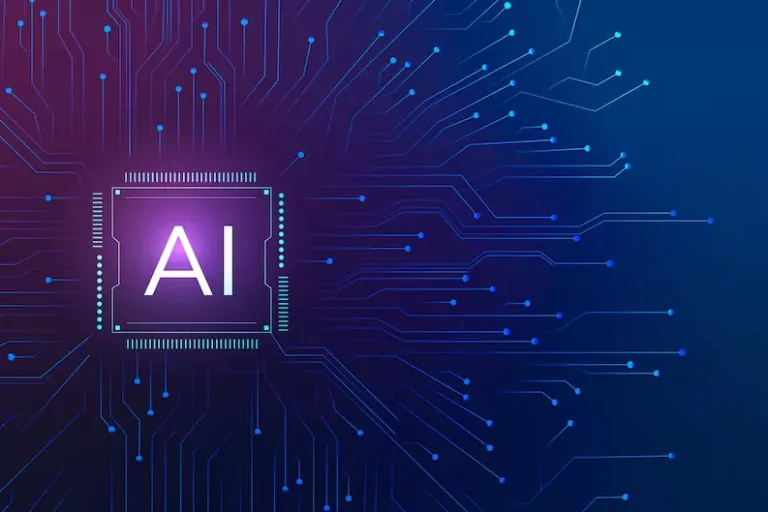The Future is Here: How Technology is Revolutionizing Our World
Introduction: The Impact of Technology on Our Lives
Technology has become an integral part of our lives, revolutionizing the way we live, work, and interact with the world around us. From the invention of the wheel to the development of smartphones, technology has constantly evolved and shaped our society. It has made our lives more convenient, efficient, and connected. However, with the rapid pace of technological advancements, it is crucial for individuals and businesses to keep up with these changes in order to stay relevant and competitive.

In today’s digital age, technology has transformed almost every aspect of our lives. We rely on smartphones, tablets, and computers for communication, entertainment, and information. We use social media platforms to connect with friends and family, and online shopping has become the norm. Technology has also revolutionized industries such as healthcare, transportation, and finance, making processes more efficient and improving the quality of services.
The Rise of Artificial Intelligence and Machine Learning
Artificial Intelligence (AI) and Machine Learning (ML) are two of the most significant technological advancements in recent years. AI refers to the development of computer systems that can perform tasks that would typically require human intelligence, such as speech recognition, decision-making, and problem-solving. ML is a subset of AI that focuses on the development of algorithms that allow computers to learn from data and improve their performance over time.
AI and ML are being used in various industries to automate processes, improve efficiency, and enhance decision-making. In healthcare, AI is being used to analyze medical images, diagnose diseases, and develop personalized treatment plans. In finance, AI algorithms are used to detect fraud, make investment decisions, and provide personalized financial advice. In transportation, AI is being used to develop self-driving cars and optimize traffic flow.
While AI and ML offer numerous benefits, there are also concerns surrounding their use. One concern is the potential for job displacement, as AI and automation could replace certain jobs that were previously performed by humans. There are also ethical concerns, such as the potential for bias in AI algorithms or the lack of transparency in decision-making processes. It is important to address these concerns and ensure that AI is developed and used responsibly.
The Internet of Things: Connecting Everything
The Internet of Things (IoT) refers to the network of physical devices, vehicles, appliances, and other objects that are embedded with sensors, software, and connectivity, allowing them to collect and exchange data. These devices can communicate with each other and with humans, creating a connected ecosystem that has the potential to revolutionize various industries.
Examples of IoT devices include smart home devices such as thermostats, security systems, and appliances that can be controlled remotely. In healthcare, IoT devices can monitor patients’ vital signs and send alerts to healthcare providers in case of emergencies. In agriculture, IoT sensors can monitor soil moisture levels and automatically water crops when needed. In manufacturing, IoT devices can optimize production processes and predict maintenance needs.
The potential benefits of IoT are vast. It can improve efficiency, reduce costs, and enhance productivity in various industries. It can also lead to improved safety and security, as IoT devices can detect and respond to potential threats in real-time. However, there are also concerns regarding privacy and security. With the increasing number of connected devices, there is a greater risk of data breaches and unauthorized access to personal information. It is crucial to implement robust security measures to protect against these risks.
Virtual and Augmented Reality: Transforming the Way We Experience the World
Virtual Reality (VR) and Augmented Reality (AR) are technologies that have the potential to transform the way we experience the world. VR refers to the use of computer technology to create a simulated environment that can be explored and interacted with. AR, on the other hand, overlays digital information onto the real world, enhancing our perception of reality.
VR and AR are being used in various industries to enhance training and education, improve customer experiences, and create immersive entertainment experiences. In healthcare, VR is being used to simulate surgical procedures and train medical professionals. In architecture and design, AR is being used to visualize how a building or space will look before it is constructed. In gaming and entertainment, VR and AR are creating immersive experiences that blur the line between the virtual and real world.
The potential benefits of VR and AR are immense. They can provide new ways of learning, training, and experiencing the world. They can also enhance communication and collaboration, allowing people to connect and interact in virtual environments. However, there are concerns regarding the potential for addiction and the impact on mental health. It is important to use these technologies responsibly and ensure that they are used in a way that benefits individuals and society as a whole.
Blockchain Technology: The Future of Security and Transparency
Blockchain technology is a decentralized digital ledger that records transactions across multiple computers. It is best known as the technology behind cryptocurrencies such as Bitcoin, but its potential applications go far beyond finance. Blockchain has the potential to revolutionize industries such as supply chain management, healthcare, and voting systems by providing security, transparency, and immutability.
In supply chain management, blockchain can provide a transparent and secure record of every transaction, ensuring that products are authentic and have not been tampered with. In healthcare, blockchain can securely store and share patient records, ensuring privacy and accuracy. In voting systems, blockchain can provide a secure and transparent way to record and verify votes, reducing the risk of fraud.
The potential benefits of blockchain are significant. It can provide increased security, transparency, and efficiency in various industries. It can also empower individuals by giving them more control over their data and transactions. However, there are concerns regarding scalability, energy consumption, and the potential for misuse. It is important to address these concerns and continue to explore the potential applications of blockchain technology.
5G Networks: The Next Generation of Connectivity
5G is the next generation of wireless technology that promises faster speeds, lower latency, and greater capacity than previous generations. It has the potential to revolutionize industries such as healthcare, transportation, and entertainment by enabling new applications and services that require high-speed, low-latency connections.
In healthcare, 5G can enable remote surgeries and telemedicine services that require real-time communication and high-quality video streaming. In transportation, 5G can enable connected cars and smart traffic management systems that can optimize traffic flow and reduce accidents. In entertainment, 5G can enable immersive experiences such as virtual reality gaming and live streaming of high-definition content.
The potential benefits of 5G are immense. It can enable new technologies and services that were previously not possible. It can also improve efficiency, productivity, and quality of life. However, there are concerns regarding the potential health effects of increased exposure to electromagnetic radiation and the potential for increased surveillance and privacy breaches. It is important to address these concerns and ensure that 5G is deployed in a way that benefits individuals and society as a whole.
Quantum Computing: Unlocking New Possibilities
Quantum computing is a field of computing that uses quantum mechanics principles to perform calculations. Unlike classical computers that use bits to represent information as either a 0 or a 1, quantum computers use quantum bits or qubits that can represent information as both 0 and 1 simultaneously. This allows quantum computers to perform certain calculations much faster than classical computers.
Quantum computing has the potential to revolutionize industries such as drug discovery, cryptography, and optimization. In drug discovery, quantum computers can simulate and analyze complex molecular structures, leading to the development of new drugs and treatments. In cryptography, quantum computers can break current encryption algorithms, leading to the need for new, quantum-resistant encryption methods. In optimization, quantum computers can solve complex optimization problems that are currently intractable for classical computers.
The potential benefits of quantum computing are immense. It can solve problems that are currently unsolvable or would take classical computers an impractical amount of time to solve. It can also lead to breakthroughs in various fields, from healthcare to finance to climate modeling. However, there are concerns regarding the stability and scalability of quantum computers, as well as the potential for misuse in areas such as cryptography. It is important to continue research and development in this field and explore the potential applications of quantum computing.
Conclusion: Embracing the Future of Technology
In conclusion, technology has had a profound impact on our lives, revolutionizing the way we live, work, and interact with the world around us. From AI and ML to IoT, VR and AR, blockchain, 5G, and quantum computing, technological advancements are shaping our society and transforming various industries.
It is crucial for individuals and businesses to keep up with these technological advancements in order to stay relevant and competitive. Embracing technology can lead to increased efficiency, improved productivity, and enhanced experiences. However, it is also important to address the concerns and ethical considerations that come with these advancements.
The future of technology is exciting and full of possibilities. By embracing and adapting to these advancements, we can create a better future for ourselves and future generations. It is up to us to harness the power of technology responsibly and ensure that it benefits individuals and society as a whole.






